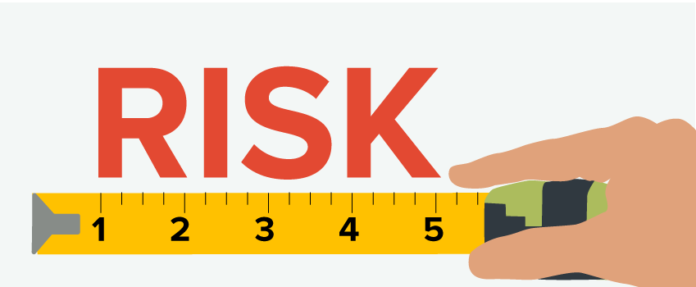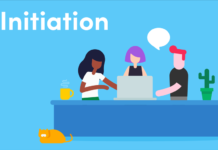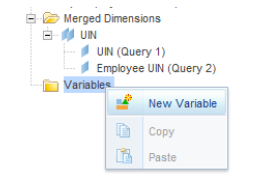- Risk is Subjective
- People are predictably irrational.
- Knowledge is Biased and Decays Rapidly on this topic.
- The Role of Lady Luck is Bigger than we Think.
- Risk is personal and emotional.
Risk is Subjective
Everyone thinks they’re safe or acting safely. What is the the gold standard for being safe?
The Future belongs to risk-takers, with a willingness to take action, knowing the outcome can be fatal. Risks are not scary once you take them. It would be best if you considered what a necessity, high value, and low risk are.
Let us broadly look at three classes of people by social circumstances.
- Singles
- In-Relationship
- Care-takers
Singles are looking for the lucky break to meet someone; this is enhanced dramatically by face to face meetings where the brain gathers much more data than texts or photos.
RISK REWARD ratio is the key to understanding the subjective nature of risk-taking. We are always calculating the lowest risk and best deal combination. We Buffer ourselves to take the risk because no risks would mean no exploration and no advancement in society. We also know the virus presents some risk in pursuit of our reward.
Each individual in the categories can be either risk-seeking or risk-averse, leading to some interesting combinations:
- Risk-seeking over low-probability gains.
- Risk-averse over high-probability gains.
- Risk-averse over low-probability losses.
- Risk-seeking over high-probability losses.
The reward goes down for those in-relationships to have social interactions compared to singles. Care-takers can be single or in-relationship camp. Still, they have the added weight of responsibility of getting loved ones infected if the decision and action-outcome go south.
A good idea can get you in more trouble than a bad idea. Bad ones are squashed immediately, but good ones put you at risk. The contradiction is if you are risk-averse, you can stop living, afraid to lose it all.
Know thy self. Some of us focus more on reward than risk, and others the inverse. Subliminally you have already convinced yourself, so you know what to expect of yourself. Also, and without judgment, understand that what you hope will invariably be different from others’ self-contract.
Knowledge is Biased and Decays Rapidly on this Topic.
Reduce uncertainty by gathering knowledge and preparing so you gain the confidence and courage to take risks. Since we are all connected to different networks, the source of our information quality will differ. Someone in a medical system will be privileged to more data than someone getting 3rd party information in a casual conversation.
Bright people can misuse their intelligence to reinforce biases. Many of us suffer from confirmation bias. We will make very logical-sounding arguments that they were real. We will use our intelligence to justify irrational pre-existing beliefs or attach to information that confirms the decision we made or want to make.
It’s the tendency to select data that support your argument while ignoring challenging data. “Motivated reasoning” leads people to dismiss alternative views without much consideration, an attitude that further entrenches the bias.
What makes the bias worst is data decay. Knowledge is mutable like a radioactive substance. Every known “fact” has a half-life. Scientists can “measure the amount of time” it takes “for half of a subject’s knowledge to be overturned.” Gradually changing facts with an expiring half-life are called “mesofacts.”
Facts about nuclear physics have a half-life of 5.1 years, facts about fundamental solid-state physics have a half-life of 6 years, and facts about plasma physics have a half-life of 5.4 years. I would guess the virus has a half-life of about a month at best.
Confront your fears rather than ignoring or running from them. Build a small, capable team that you regularly chat with to get better quality information, reduce your bias, and keep your knowledge fresh. Don’t blindly accept risk; deal with it intelligently.
People are Predictably Irrational.
We want to think that logically we would keep our self contracts—the ones we make with ourselves on how we will act in different scenarios.
We have many cases of overspent budgets when encountering an unexpected sale. Many diets have failed after extensive planning. Although we have comprehensive education, unplanned pregnancy due to unprotected sex still occurs. The logical person would have never predicted this; it would never have happened to them.
Many of us are stressed, wishing, and sometimes pretending this pandemic does not exist. It is essential to possess self-knowledge and acknowledge that we are flawed; Your family, your loved ones, and your life are all at risk.
Common sense is not common practice. What we say is not necessarily what we do. We take more risk, more chances, and worry less. We think more about quintessential things to ME when we should be looking wider than ourselves.
The Role of Lady Luck is Bigger than we Think.
A blend of luck and skill affects the outcome of every decision and shapes our life. While people tend to blame their own flawed outcomes on poor luck, they see everyone else’s poor outcomes as their fault. A close examination of anyone’s choices reveals a constant truth—no outcome results from 100% luck or 100% skill.
Impact and probability define risk. The mutating virus has an unknown effect from person to person. The range is as wide as mildly asymptomatic to high consequential fatality. What is the worst that can happen? We do not know for each of us, so let us turn our attention to probability.
Let us consider airline travel. Early adopters have a little risk of infection with a smaller number of travelers. The early majority have a higher chance of infection. The role of luck is influenced by whom is on the aircraft and their complex web of relationships. We have no idea who on the flight has been continuously networking and possibly interacted with infected people. We have no idea of our seating proximity to a super-connector.
While we enjoy a lead time deciding the travel date, the risk assessment can quickly become stale as the date approaches. Probability and availability of the risk cascade and impact decision making. Risk is inherent in the commitment of present decisions to future expectations. I am sure there are many missing variables that I have not mentioned, all of which can impact the outcome with equal probability. We underestimate the role of luck in our willingness to take risks.
We must remain diligent about the difference between calculated risk and wild eye hope. We must do our best to be able to take risks but protect ourselves against the downside.
Risk is personal and emotional.
People must take risks. Our decisions are based on feeling and logic and determine how we chose to spend our lives. The feeling is easy, but thinking and explaining risks the ego, leaving us feeling vulnerable to defend our actions. Vulnerability is being in UNCERTAINTY, at RISK, AND EXPOSED.
We can all agree that our decision making fits the criteria since we do not know. I have made the mistake of asking, “why you think that?” It has never been met with open arms. Whether at work or in your personal life, frame this in the context of curiosity. This mindset can help you get a better response.
In closing, I leave you these points to ponder.
- Be decisive. All decisions carry an element of risk. Your risk estimated must never be lowered but instead only be raised. Take calculated risks knowing we have never had a similar virus before.
- Excessively confident people try more things and take more risks, and they both succeed and fail more often than those who take measured risks. Long Haulers with long term side effects are real. There is no recovery plan for some of us; it will be game over, so in this case, prevention is better than cure.
- Optimists easily conceive of new ideas for vaccines and recovery drugs. Pessimists are quick to find errors and risks. Turn to your pessimist’s friends to cull through and hone in on your possible blind spots.
- New technologies will accelerate the journey, making unmasked life more accessible and less risky. Don’t fall for risk assessments that apply to large groups but not to individuals.
Sharing is Caring. Thanks for reading and Sharing ❤
Follow me On: Instagram | Facebook | Linked in
Subscribe for Monthly Inspiration











